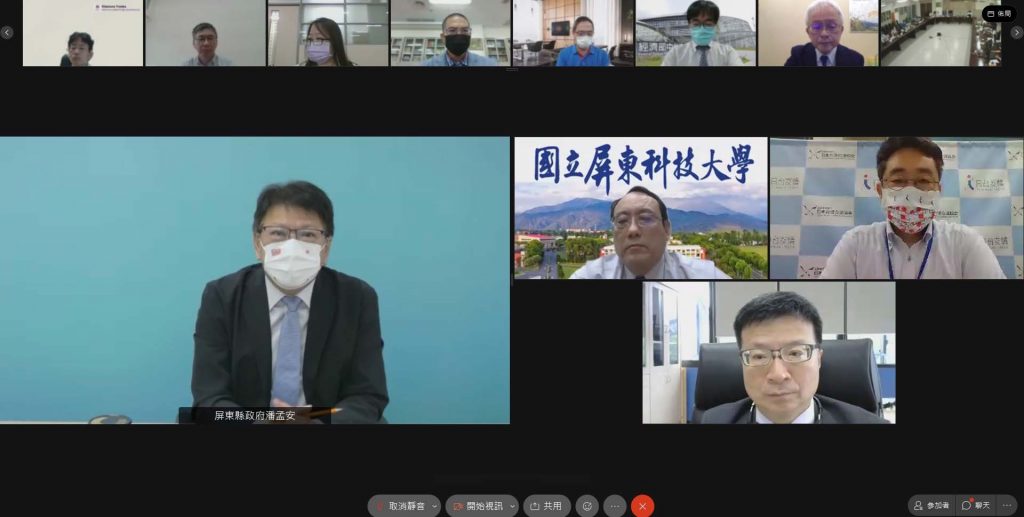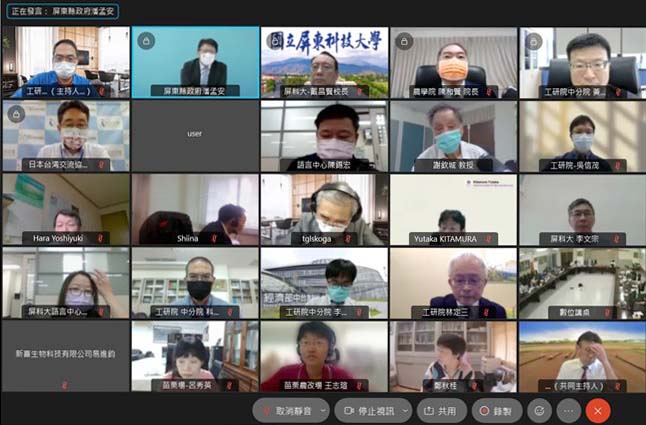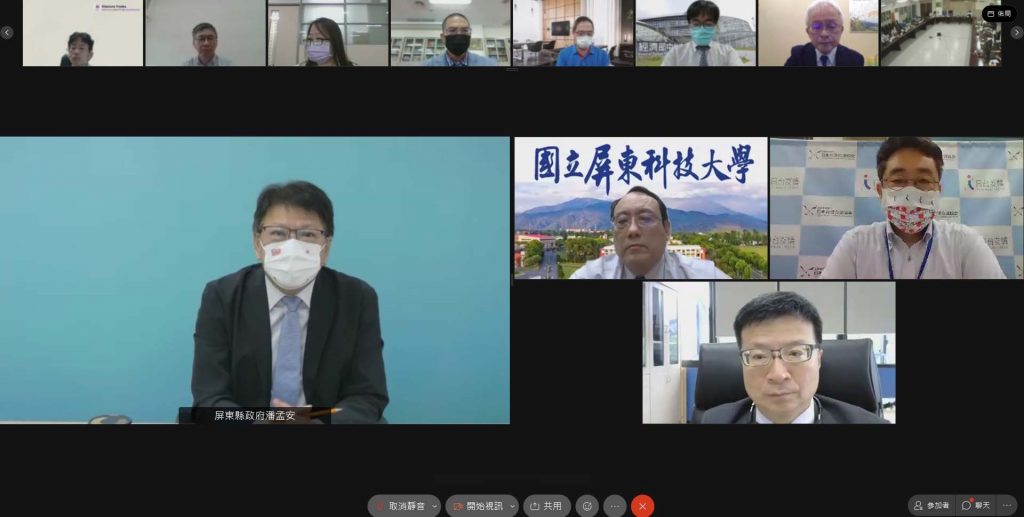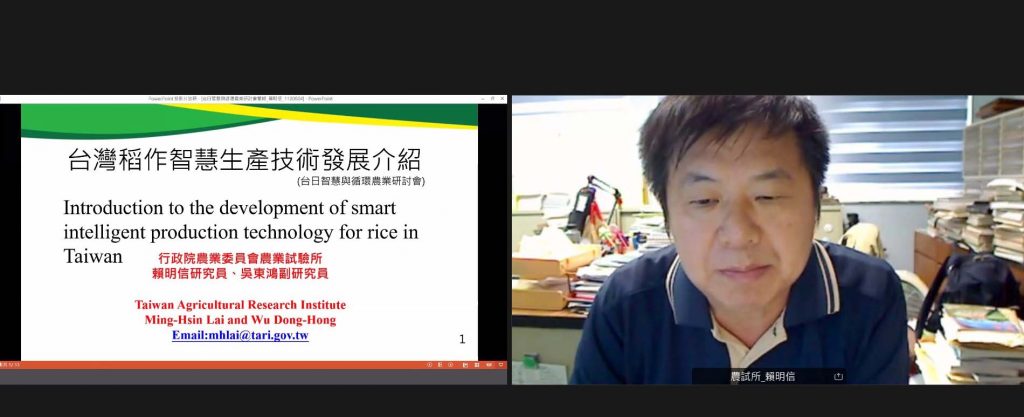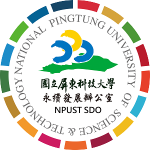National Pingtung University of Science and Technology (NPUST) has added a new element to its efforts in sustainable development research: On August 4th and 5th, the university’s College of Agriculture and the Industrial Technology Research Institute (ITRI) linked up with Japan for the “Taiwan-Japan Online Seminar for Smart and Circular Agriculture”. The seminar was opened with a speech made by Mr. Huang Hsin-Chien, the executive director of the central branch of the ITRI. Following this, NPUST President Chang-Hsien Tai, welcomed all the distinguished guests from industry, government and academia and thanked them for their contributions to sustainable development. The Pingtung County magistrate, Mr. Pan Men-An, and the Director of the Economic Section of the Japan-Taiwan Exchange Association, Mr. Nobuyuki Shikasho, were also invited to speak. Hopes are that through the cooperation of industrial, academic, and research organizations in Taiwan and Japan, new applications of Smart technology will be used to help achieve Circular and zero-carbon production. The seminar attracted over 300 online participants.
NPUST President Chang-Hsien Tai stated that the university is actively promoting “Circular Economies” and has been recognized both in Taiwan and abroad for the achievements it has made in the development of a sustainable campus. The seminar invited outstanding representatives from industry, government, and academia in Japan and Taiwan to discuss this important topics and share results related to Smart and Circular practices. NPUST will continue to work hard to cooperate with all parties and actively participate in research and the promotion of new technologies in order to make further contributions to sustainable development.
Pingtung County Magistrate, Pan Men-An, stated that with the support of the central government, Pingtung’s agriculture is gradually moving towards Smart agricultural technology. Following four major strategies: regional cooperation, cross-sector added value, talent recruitment, and emphasis on quality, Pingtung has set itself up as a competitor which will be difficult to imitate or replace. Hopes are that through Smart technology, we will be able to achieve a Smart and Circular based industrial ecosystem that will lead a new wave of innovative industrial development.
Mr. Huang Hsin-Chien, the executive director of the central branch of the ITRI, pointed out that in recent years, with the support of the Council of Agriculture and the Ministry of Economic Affairs, the ITRI has been conducting agriculture and industrial cross-sector integration. Hopes are to become the center for new Smart agricultural operations, with long-term goals set on artificial intelligence applications. Through Smart technology, digitalization, and Circular agriculture operations, we will be able to support agricultural businesses and young farmers and assist in the creation of innovative value-adding activities for Taiwan’s next era of agriculture.
The Japan-Taiwan Exchange Association attached great importance to the seminar. Mr. Nobuyuki Shikasho Director of the Economic Section of the association mentioned that the population of agriculture professionals is declining and in response to climate change, sustainable food production has become a global issue. In order to solve this problem, countries all over the world are making an effort in the areas of Smart and Circular Agriculture. It is expected that with experts from Taiwan and Japan working together, new contributes will be made to sustainable development in the region.
Retired NPUST professor, Ching-chen Hsieh, was called to discuss the reasons for holding this seminar and share his hopes that through the seminar, Japan would be able to introduce new Smart and Circular agricultural technologies to the participants, so that Taiwan’s rice farming and agricultural production technology will be able to take a major step forward.
During the two-day seminar, four Japanese scholars and eight experts from industry, government, and academia in Taiwan published and exchanged papers. The presentations and interactive discussions were very lively and enthusiastic and the information that was shared is expected very helpful for those working to promote sustainable development research in Taiwan.





